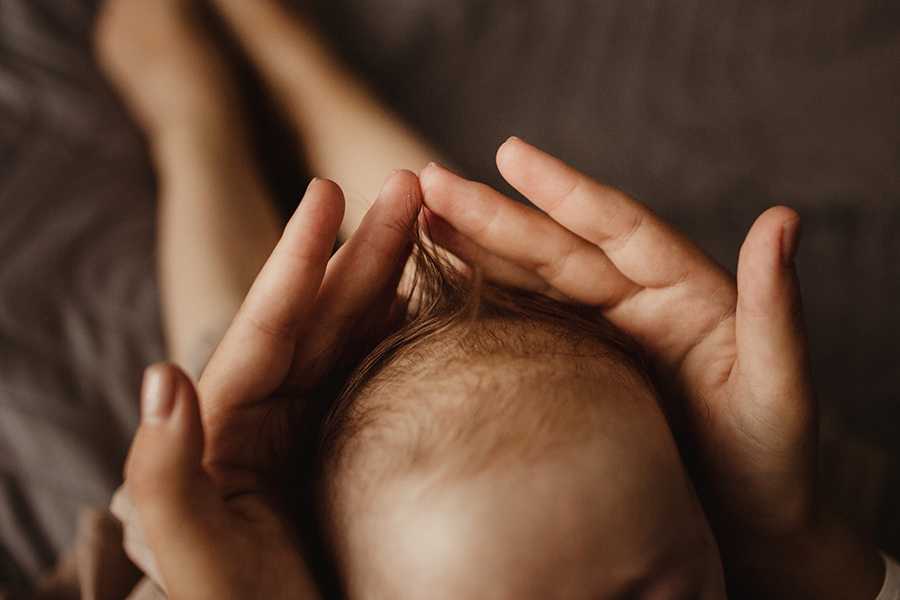The first few days with your new-born baby are some of the most intense and amazing days of your life.
Immediately after the birth, you will be focused on bonding with your baby and getting to know each other. You will also be working on establishing breastfeeding. You may feel overwhelmed and exhausted, but also exhilarated and joyful.
These first few days are a crucial time for you to bond with your baby. You’ll be getting to know each other and getting to know your baby’s cues. You’ll also be getting lots of help and support from the nurses and doctors. They will be making sure that you are both healthy and happy.
In those first few days, you will be doing a lot of feeding, changing, and cuddling. You may be up all night long, but it’s all worth it. These are moments that you will cherish forever.
The first few days with a newborn can be tough. You’re physically and emotionally exhausted from the birth, and you’re trying to figure out how to care for this new little human. Here are some tips for surviving those first few days:
- Get as much rest as you can. This is easier said than done, but try to take advantage of any opportunity to sleep, even if it’s just a 20 minute nap.
- Ask for help. Don’t be afraid to ask your partner, friends, or family for help with things like cooking, cleaning, or taking care of older children.
- Accept offers of help. Even if you don’t think you need it, accept offers of help from friends and family. They may not be able to do much, but just having someone there to lend a hand can be a big help.
- Take care of yourself. Be sure to eat healthy meals and drink plenty of fluids. And don’t forget to take a few minutes each day to take a deep breath and relax.
- Bond with your baby. Spend some time each day cuddling, talking, and just spending time with your new baby. These moments are precious and will help you bond with your child.

What is Vitamin K?
The first few days with the new-born are vital, and one of the most important things you can do is make sure they get enough Vitamin K. Here’s everything you need to know about this essential nutrient. Vitamin K is a fat-soluble vitamin that is essential for blood clotting and bone health.
Why is it important for new-borns?
Newborns are especially at risk for Vitamin K deficiency because they have limited stores of the vitamin and their gut is not yet fully developed so they are not able to absorb it as efficiently as adults. This can lead to a condition called Vitamin K Deficiency Bleeding (VKDB), which can be life-threatening.
How much Vitamin K does my new-born need?
The American Academy of Pediatrics (AAP) recommends that all newborns receive a Vitamin K shot at birth. This provides them with the recommended amount of the vitamin for the first few weeks of life.
What are the side effects of the Vitamin K shot?
There are very few side effects of the Vitamin K shot, and most of them are mild. They can include pain and redness at the injection site, fever, and irritability.
When should my new-born get the Vitamin K shot?
The Vitamin K shot should be given to all new-borns within the first few hours after birth.
What you can expect during those first few days with your new-born
The first few days with your newborn can be both exhilarating and exhausting. On one hand, you are experiencing the joys of new motherhood and all the wonderful snuggles and cuddles that come with it. On the other hand, you are probably not getting much sleep and are adjusting to all the new demands of caring for a baby.
Here are a few things to expect during those first few days
- Feedings will be frequent. New-borns need to eat often, about 8-12 times per day. This may seem like a lot, but they have tiny tummies and can only handle small amounts of milk at a time. Don’t worry, you will get the hang of it and before you know it, you will be a pro at feeding your baby.
- Sleep will be sporadic. Newborns do not have a regular sleep schedule and will probably sleep for short periods of time during the day and night. This can be tough for new parents who are trying to adjust to a new sleep schedule themselves. Again, it is something that you will get used to with time.
- You will have good days and bad days. Some days you will feel like you have this motherhood thing down and other days you will feel like you are failing. It is perfectly normal to feel like this and it is important to remember that every day is different. Some days will be great and some days will be tough, but you will get through it.
- You will be emotional. The hormonal changes that occur after childbirth can cause mood swings and emotional outbursts. This is normal and nothing to be ashamed of. Just know that it is temporary and will eventually subside.
- You will be exhausted. Caring for a newborn is a lot of work and can be very tiring. Make sure to rest when your baby is sleeping and ask for help from family and friends when you need it.
- They need to be kept warm. Newborns are not able to regulate their own body temperature, so it’s important to keep them warm. This means dressing them in warm clothes, and making sure their sleep environment is cosy.
- They need to be burped. After feeding, newborns need to be burped to release any air bubbles that may have been swallowed during the feeding. This helps to prevent discomfort and gas.
- They need your love. Newborns need plenty of love and attention. They’re not able to do anything for themselves, so it’s up to us to care for them. This includes holding them, talking to them, and providing them with all the love and support they need.
Recovery from childbirth is different for every woman, but in general, it takes a few weeks to feel like yourself again. During this time, your baby will be completely dependent on you, and it’s important to be gentle with yourself as you adjust to this new role.
Taking care of a newborn is a lot of work, but it’s also an incredible privilege. Nurture your baby, and nurture yourself, and the two of you will bond in a way that is unlike any other relationship.
Would you like to know more about parenting? Go to our next article!
Would you like to know more about your pregnancy? Visit our Mumgazine YouTube channel!


Yo, guys! Heard about Top88vn? It’s got some pretty sweet promos. Trying my luck there. Gonna hit it big! Check it out: top88vn
Metabcr. Seriously, that name is a mouthful! But the site itself? Not bad, not bad at all. Lots of games and the live casino is pretty smooth. Gotta try my luck later! Give it a look at metabcr.
Alright, folks! Gave mcw678casino a spin and I’m liking what I see. Smooth interface and a good selection of games. Definitely worth checking out if you are looking for a new place to play! See for yourself mcw678casino
Gave bl55555 a peek. It’s… well, it’s there. Gotta see what it actually *does* after you get in. Hopefully not a waste of time! Give it a shot and tell me what you think: bl55555